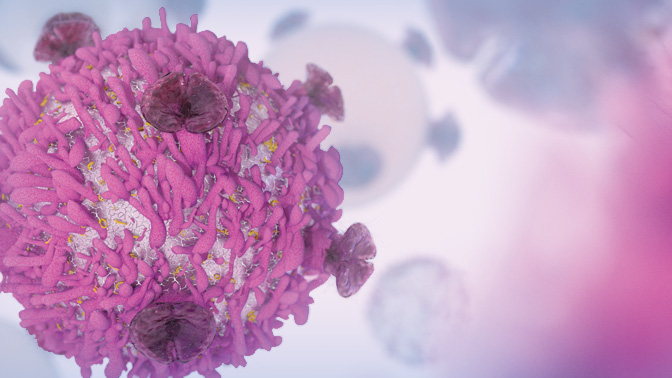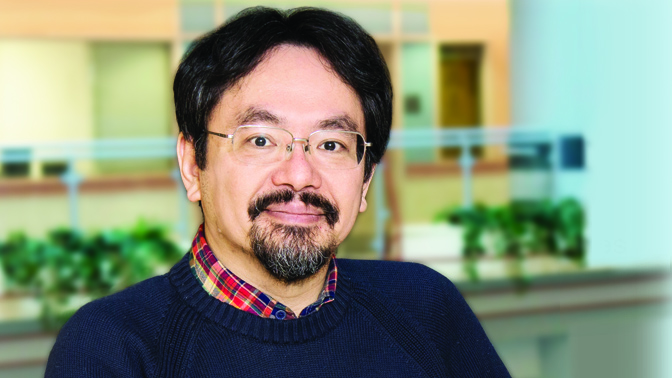
A research team led by Princess Margaret Cancer Centre Senior Scientist Dr. Naoto Hirano has engineered a molecule that may have the potential to enhance the effectiveness of existing immune therapies. The findings were published in the prestigious journal Nature Medicine.
The type of immune therapy relevant to Dr. Hirano’s work is known as chimeric antigen receptor (CAR) T-cell therapy—a therapy that helps patients’ own immune cells, known as T cells, to identify and fight cancer cells.
In simple terms, CAR T-cell therapies help the immune system to recognize and destroy cancer cells through a process that begins with the isolation of T-cells from patients. Next, these cells are genetically modified so that they produce the CAR molecule on their surface. The CAR molecule is a modified version of a T-cell receptor that is specifically engineered to recognize tumour cells. These genetically modified cells are then grown in a lab to increase their numbers before being infused back into patients.
Dr. Hirano comments, “Once they are infused back into patients, CAR T-cells grow, multiply and are able to target and kill cancer cells, but there are many roadblocks. Currently, CAR T-cell therapy has only been approved in the United States for blood cancers such as advanced lymphoma and acute lymphoblastic leukemia. Part of the reason for this may be that existing CAR constructs—while good at alerting the immune system to the presence of cancer—don’t produce certain signals that are known to support the continued destruction of the cancer cells."
To overcome this, Dr. Hirano’s team engineered a CAR molecule that activates specific protein signalling pathways—including the JAK kinase, STAT3 and STAT5 pathways—which are known to enhance the growth and function of T-cells.
“In our experimental models, the CAR molecule we engineered enabled T-cells to display more potent activity against different cancers, including solid tumours, which remain a challenge in the field. Current CAR T-cell therapies have shown limited success when treating solid tumours likely because of the harsh conditions faced by immune cells attempting to infiltrate the interior of the tumour. Furthermore, in these same models we did not observe any worsening of potential side effects,” says Dr. Hirano.
While these findings are preliminary, the performance of the engineered CAR T-cells created by Dr. Hirano’s team suggest that optimizing CAR molecules may help to broaden the effectiveness of CAR T-cell therapies against different cancers. Future work will focus on translating these findings into clinical trials to explore the safety and efficacy of the engineered CAR molecule.
This work was supported by the Canadian Institutes of Health Research, the Ontario Institute for Cancer Research, BioCanRX, the Japan Society for the Promotion of Science, the Government of Ontario, the Natural Sciences and Engineering Research Council of Canada, Takara Bio, Inc., and The Princess Margaret Cancer Foundation.
Kagoya Y, Tanaka S, Guo T, Anczurowski M, Wang C-H, Saso K, Butler MO, Minden MD, Hirano N. A novel chimeric antigen receptor containing a JAK–STAT signaling domain mediates superior antitumor effects. Nat Med. 2018 Feb 5. doi: 10.1038/nm.4478.

Dr. Naoto Hirano, lead author of the study, is a Senior Scientist at the Princess Margaret Cancer Centre at University Health Network.




